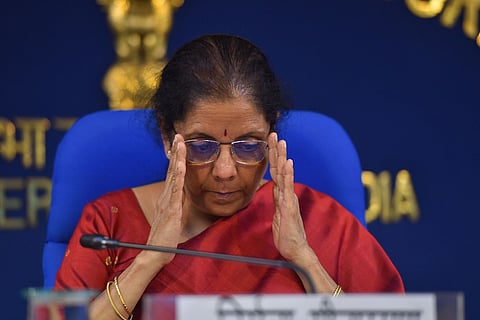

At 8 pm on March 31, the income tax department extended the deadline to link your Aadhaar with PAN by another three months. Amid this ever extending deadline, there were a lot of people who wanted to link their Aadhaar with PAN to avoid penalties and ensure their PAN is not invalidated. Some people who did want to link their Aadhaar were unable to do it, due to the income tax portal crash, and others were waiting for the extension announcement. Even after multiple Supreme Court judgments, the issue of Aadhaar-PAN linkage still remains a concern for people who oppose this. As someone who doesn’t want to link his Aadhaar, I will explain the larger concerns around this exercise.
One of the early reasons envisioned by the Planning Commission of India in its working paper in 2007 to issue a unique identity to every citizen, was to track welfare subsidies and also measure the income of every household receiving these subsidies. The government was trying to balance both its expenditure and revenue and was looking to improve its statistics of the welfare economy. Anyone who earns more than the poverty limits, cannot be allowed to misuse resources, was the stated purpose. To determine every individual's income also required formalisation of an informal economy, to bring every transaction under the government’s radar to tax them appropriately as well. Essentially, the government was trying to build a larger tax intelligence/surveillance system. For this system to work, it needs to capture everyone’s details; there can be no exceptions, or this particular form of unique identity based system doesn’t function.
The Supreme Court through its judgment on Aadhaar in 2018 allowed the Government of India and its institutions to use Aadhaar for welfare subsidies. The court by striking down section 57 of Aadhaar Act, which allowed the private sector to use Aadhaar, tried to limit its usage. The court gave relief to the larger public not to be forced to link Aadhaar at every store that wants to acquire you as a potential consumer under the business model of surveillance capitalism. But it ignored the plight of the poor, forcing them to still continue to use Aadhaar to claim subsidies. At the same time, the court upheld the Aadhaar-PAN linking under section 139AA of Income-Tax Act as a legitimate exercise, which fits the proportionality test prescribed in the right to privacy judgment.
In that sense, the Aadhaar-PAN linkage allows the government to track income of citizens while Aadhaar for welfare subsidies tracks expenditure. But one still needs to link Aadhaar to bank accounts to track money flow, as not everyone has a PAN card. An exercise which the Supreme Court did not allow, but is yet being attempted by the Finance Minister, through her oral instructions asking banks to carry out this exercise. Even after two years after the Aadhaar judgment, the matter looks less than settled when it comes to implementation. The government has started pushing people to share Aadhaar with the private sector with new rules under Prevention of Money Laundering Act and with weird Good Governance mumbo jumbo.
The forcing of linking of Aadhaar is back where it began and is continuing, the government now is giving out the threat of invalidating the PAN card, but is very afraid it might lose tax income from people who are resisting this folly exercise by not providing alternatives. Effectively, things are back to normal, and people who resisted Aadhaar and didn’t decide to enroll into the programme continue not to do so in the hope that the case can be re-looked into. For people who have been resisting Aadhaar, who may not be claiming welfare subsidies, the Aadhaar-PAN linkage is a serious hurdle to pay their taxes and file their returns. This class of people wants to pay their taxes but does not want to be forced into the Aadhaar programme.
There are legitimate concerns around Aadhaar and the way the government is using it to force people to be tracked everywhere, and people feel it is not in their best interest. The idea that the government will uniquely identify us for their benefits is not always beneficial to all sections of the citizenry. Especially to the minorities of the society, this is a big no, when the government comes forcing you to show papers. The threat of identification by the government is not distant and is very visible when it comes to the National Register of Citizens (NRC) and the upcoming National Population Register (NPR), a distant cousin of Aadhaar. In fact, under protests from the business community, the government had to remove the PAN card column from the NPR exercise.
Collective Action from citizens does have its impact; the only question is how long people can continue to do this. The government wants to test us and keeps threatening with a deadline we all know it can’t meet. Will the government invalidate a large portion of PAN cards and lose revenue in the form of tax? No. It also cannot cancel your PAN without hearing you out. But the government will always threaten you to link it or there will be a fine. The only way to navigate this tug of war is by resisting them, by filing taxes through paper (yes, I know they won’t accept it) or resist it by not filing if you don’t fit the tax brackets.
But the only way we are moving ahead is through collective action. We stand together or we all sink together, but there are consequences of allowing the government to do as it pleases without being able to negotiate our rights. The more we resist, the deadline to link will be delayed further, probably it will never end.
Srinivas Kodali is a researcher documenting data, governance and the internet in India.
Views expressed are the author's own.